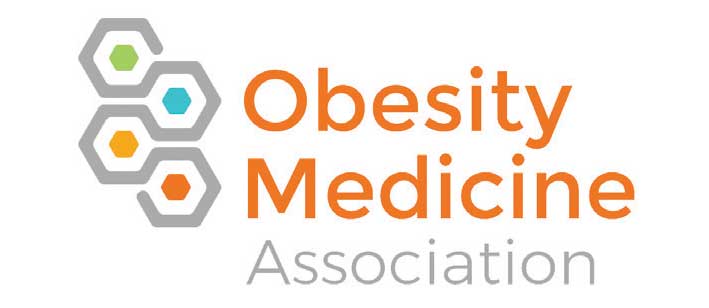Health Education Week Highlights Advancements and Opportunities in Obesity Medicine
 by Craig Primack, MD, FACP, FAAP, FOMA
by Craig Primack, MD, FACP, FAAP, FOMA
Dr. Primack is Medical Bariatrician/Certified Medical Obesity Specialist/Co-medical Director, Scottsdale Weight Loss Center PLLC, in Scottsdale, Arizona, and President of the Obesity Medicine Association.
FUNDING: No funding was provided.
DISCLOSURES: Dr. Primack is the President of the Obesity Medicine Association.
Bariatric Times. 2020;17(10):21
This year, National Health Education Week falls on Oct. 19–20, and it will shine a spotlight on the most pressing public health issues facing the country.1 It will also provide clinicians and other healthcare professionals a chance to tap into educational resources that can better equip them to tackle today’s public health challenges.
The 200-percent increase in the number of American adults living with obesity over the past 40 years makes it critical for the medical community to celebrate advancements in obesity medicine and capitalize on opportunities to learn more.2 Today, obesity is widely accepted as a medical disease—a major step forward from the days when it was treated as a lifestyle condition, or worse, a personal failure. The American Board of Obesity Medicine (ABOM) has certified over 3,300 diplomates across the country. And we are on the cusp of the medical breakthroughs that will forever redefine how obesity is treated.
Advanced obesity knowledge is particularly important for bariatric surgeons who are on the frontlines of America’s obesity crisis. The more we know, the better equipped we are to guide our patients toward better health outcomes. Access the following resources from the Obesity Medicine Association (OMA) to expand your knowledge and stay updated on our field’s most current understanding of the disease, treatment options, and more:
ABOM Exam Review Course. OMA is one of four organizations to offer preparation materials for the ABOM exam, and this year features all-new resources.3 Take the ABOM exam with confidence and join the 3,300+ diplomates who are bringing advanced obesity medicine concepts into their clinical practices. Earn up to 32 CME credits with the new prep bundle for the 2021 exam.
2020 Adult Obesity Algorithm®. Available in both print and digital editions, OMA’s 2020 Adult Obesity Algorithm® provides up-to-date information on the mechanisms, evaluation, and treatment of obesity.4 Learn why obesity is a disease, its role in causing common metabolic conditions, and how to reduce disease risk through obesity management.
2020 Pediatric Obesity Algorithm®. Childhood obesity can impact health well into adulthood.5 The Pediatric Obesity Algorithm was designed by practicing pediatricians and clinicians who specialize in treating infants, children and adolescents to help healthcare professionals (HCPs) make informed decisions when treating childhood obesity.6 Use this recently updated clinical tool as a resource when making treatment recommendations or referrals to childhood obesity specialists.
COVID-19 Resources. OMA has assembled a number of resources for HCPs to access during the COVID-19 pandemic.7 From articles and webinars to podcasts and continuing education, these digital resources will keep you updated on what the novel coronavirus means for your practice, patients, and community.
Fundamentals of Obesity Treatment Virtual Course. The 2-day Fundamentals of Obesity course delivers an introductory education about evidence-based approaches for evaluating, diagnosing, and treating obesity in a clinical setting.8 Gain the tools needed to develop effective treatment plans for patients with obesity in your practice.
Overcoming Obesity 2020—Virtual Conference. OMA’s completely virtual fall conference offers an opportunity to engage with the nation’s leading obesity experts and learn how to treat obesity in patients of all ages, genders, and socioeconomic groups.9 Equip yourself with practical strategies for clinical obesity treatment and tap into a powerful professional network of HCPs. This conference also offers two preconference opportunities: The Review Course for the ABOM Exam and Building an Obesity Treatment Plan: Advanced Cases.
It’s an exciting time for obesity medicine. Fortunately for the 93 million Americans with the condition, we’ve finally moved past the days of “eat less, move more.”10 We’ve also come to understand the limits of body mass index (BMI) for assessing overall health and that physical activity alone is an incomplete prescription for obesity.11,12 Today, there are a number of pharmacological options available to treat obesity, and new therapies are on the horizon. Bariatric surgery remains an effective treatment avenue for many patients.13 And none of it could have happened without health education and awareness.
HCPs share a responsibility to grow our medical knowledge of the conditions facing our patients and communities. Together, we can advance our field for the better, for everyone.
To learn more about OMA or to become a member, visit: www.obesitymedicine.org.
References
- National Health Education Week 2020. Society for Public Health. https://www.sophe.org/focus-areas/national-health-education-week/national-health-education-week/. Accessed September 1, 2020.
- Obesity and Overweight. Centers for Disease Control. https://www.cdc.gov/nchs/fastats/obesity-overweight.htm. Accessed September 1, 2020.
- Prep Materials for the ABOM Exam. Obesity Medicine Association. https://obesitymedicine.org/review-course-for-abom-exam/. Accessed September 1, 2020.
- 2020 Obesity Algorithm®. Obesity Medicine Association. https://obesitymedicine.org/obesity-algorithm/. Accessed September 1, 2020.
- Childhood Obesity Causes and Consequences. Centers for Disease Control. https://www.cdc.gov/obesity/childhood/causes.htm. Accessed September 1, 2020.
- Pediatric Obesity Algorithm. Obesity Medicine Association. https://obesitymedicine.org/childhood-obesity/. Accessed September 1, 2020.
- COVID-19: Obesity Medicine Association Resources. https://obesitymedicine.org/covid-resources/. Accessed September 1, 2020.
- Fundamentals of Obesity Treatment Course. Obesity Medicine Association. https://obesitymedicine.org/conferences/fundamentals-of-obesity-treatment/. Accessed September 1, 2020.
- Overcoming Obesity—2020 Virtual Conference. Obesity Medicine Association. https://obesitymedicine.org/fall/. Accessed September 1, 2020.
- Adult Obesity Facts. Centers for Disease Control. https://www.cdc.gov/obesity/data/adult.html. Accessed September 1, 2020.
- Primack C. Beyond BMI: How Surgeons Can Better Assess Patients with Obesity. Bariatric Times. https://bariatrictimes.com/how-surgeons-better-assess-patients-obesity/. Accessed September 1, 2020.
- Fitch A. An Incomplete Prescription: The Limitations of “Eat Less, Move More” in Obesity Treatment. Bariatric Times. https://bariatrictimes.com/incomplete-prescription-eat-less-move-more/. Accessed September 1, 2020.
- Wolfe BM, Kvach E, Eckel RH. Treatment of obesity: weight loss and bariatric surgery. Circ Res. 2016;118(111):1845–1855.
Category: Medical Methods in Obesity Treatment, Past Articles




